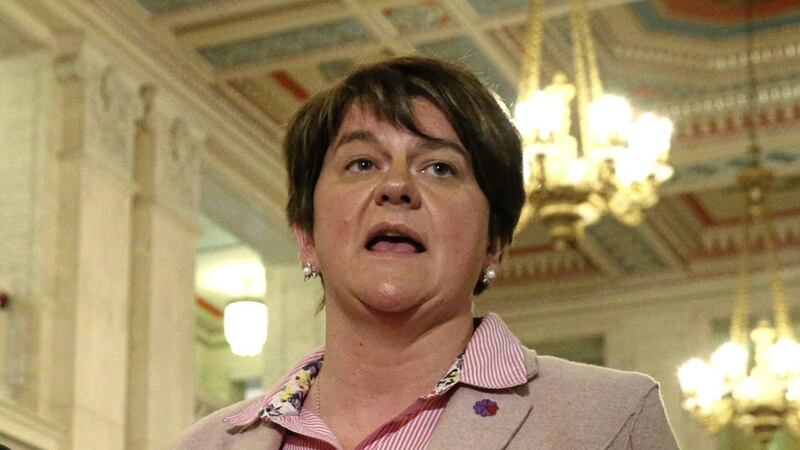Almost two years since it was established, the public inquiry into the Renewable Heat Incentive scheme – the green energy scandal that brought down Stormont – has concluded its public sessions. Brendan Hughes assesses what we've learned, what conclusions the inquiry might reach – and what it means for the future of devolution
IN ITS terms of reference, among the aims of the RHI inquiry is to "restore public confidence in the workings of government".
But after 114 days of public hearings exposing a litany of problems, the inquiry faces an uphill battle to achieve this.
Layer upon layer of failings in the Renewable Heat Incentive scheme – from its design, to its operation, to its delayed closure – have been uncovered which contributed to its budget spiralling out of control.
It is clear there are many, many learnings in how government schemes doling out taxpayer money are dealt with in future.
RHI had staffing shortages, with officials drafted in who had little to zero expertise in energy policy. Warnings of flaws were raised on multiple occasions but were not taken seriously. There was a failure to understand whether government locally or the British Treasury would foot the bill for an overspend. Numerous public bodies had details that should have raised red flags, but they failed to act upon them or speak to each other about them. And when the budget-busting flaws finally dawned on officials, plans to introduce cost controls were openly shared with industry – exacerbating a huge spike in applications.
But through its public evidence sessions, the RHI inquiry has also given an unprecedented insight into the workings of devolution, revealing an inherently dysfunctional set-up.
The salacious claims of a drunken business trip, a breakfast bust-up, back-room bullying and even the "sexual misbehaviour of two DUP ministers" have grabbed headlines, but are relatively immaterial to what went wrong with RHI.
One recurring theme though has been the impact and influence of ministers' special advisers (Spads).
Jonathan Bell – who succeeded DUP leader Arlene Foster as the minister in charge of RHI – claimed party Spads intervened to delay the introduction of cost controls in autumn 2015.
The inquiry has heard competing claims over whether DUP Spads Timothy Johnston and Andrew Crawford sought to delay such measures, but perceived conflicts of interest among Spads have repeatedly been identified.
Mr Crawford, who was Mrs Foster's Spad, had a poultry farmer brother and two cousins with 11 RHI boilers between them. Despite this, he shared inside information with relatives and industry.
Stephen Brimstone, another DUP Spad, personally applied to RHI. He said he told Mrs Foster about this, but was still included in correspondence on plans to close the scheme.
Another DUP Spad John Robinson's father-in-law was an RHI claimant, but he only withdrew from working on RHI matters in January 2017 after media probing.
The inquiry has also heard how some Spads appeared to have greater authority than their appointing ministers, particularly Mr Johnston, who was considered second in seniority to the DUP leader.
DUP ministers signed papers saying they had chosen their Spads from a pool of candidates, but the inquiry heard Spads were hired and fired by the party centrally.
None of these matters seemed to raise concerns at the time. It meant repeated breaches of procedures, a lack of declaring interests, and a ministerial code that one senior official said was "almost impossible to enforce".
Not only have governance issues been identified at a political level, but also in the operations of the civil service.
Record-keeping and note-taking were sparse and inconsistent, which has raised concerns about a culture of secrecy.
Stormont's chief civil servant David Sterling revealed some meetings were deliberately not minuted to avoid disclosures through Freedom of Information legislation – a startling claim that has prompted its own investigation by the Information Commissioner's Office.
The inquiry heard it was common for ministers from all parties to use personal email accounts for government business rather than Stormont's IT systems.
Regardless of these revelations, in the eyes of the public many will have made up their minds that the buck stops with the minister who launched RHI, Mrs Foster.
When The Irish News first asked the DUP leader in 2016 about RHI, she asserted that she could not be across every "jot and tittle".
In her inquiry evidence, Mrs Foster hasn't veered far from this stance.
She acknowledged the controversy was a "matter of deep regret". She admitted she had not read the legislation brought to the assembly in her name to set up RHI.
But the DUP leader was regularly unable to recall specifics and insisted it was up to officials to raise issues with her.
It was "difficult to see what I could have done differently", she said.
On the actions of her Spad Mr Crawford, Mrs Foster said: "I'm accountable but I'm not responsible."
This is one of the key quotes summing up the task of the inquiry. Where does ministerial responsibility begin and end? This will face further scrutiny, with inquiry chair Sir Patrick Coghlin himself saying he is "not entirely clear" what Mrs Foster meant.
It is not known what Sir Patrick and his panel might conclude from all they have heard, or how they may apportion blame for this mess.
However, likely targets are a reigning in of Spads and a reform of the ministerial code. A re-emphasis on the importance of civil service record-keeping may also feature.
We will also have to wait and see just how critical the final report is of Mrs Foster. Her precarious future as DUP leader is intrinsically linked to the outcome.
What happens next? With public sessions now at an end, the panel will retire to prepare their final report.
No date has been fixed for publication, although there is speculation it could be finished by spring 2019.
Two years ago, a green energy scheme which literally paid people to burn fuel was so scandalous that it brought down Stormont's power-sharing institutions. Making sense of this was a tough enough task to begin with.
But the inquiry has revealed so many more problems with Stormont than ever envisaged that picking up the pieces, repairing relationships and restoring faith in devolution seems a distant prospect.
And that's before even factoring in Brexit.







